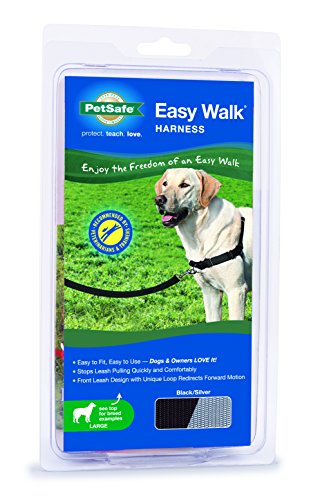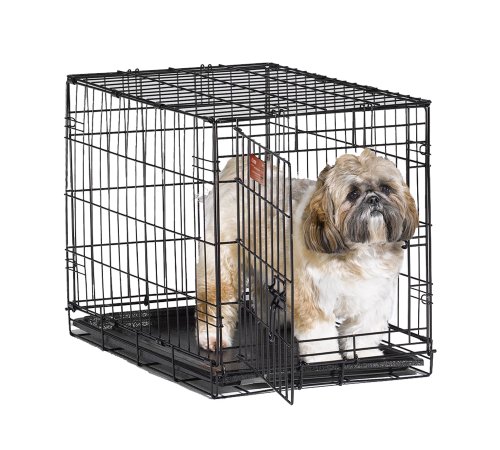
The Boxer's Personality
Any boxer owner will tell you - a boxer is not a dog, it's a person. From its facial features, capable of exhibiting an unbelievable array of varying emotions, to its severe sense of loyalty, bravery, and friendship, a boxer does indeed stand out among other breeds. It has been described as having twelve very distinct personality traits:
- Playful
- Friendly
- Loyal
- Calm
- Confident
- Brave
- Intelligent
- Devoted
- Energetic
- Fearless
- Cheerful
- Bright
 Owners claim the three best aspects of a boxer are 1) its face, 2) its cuddle-factor, and 3) its tendency to be a clown. Need a furry hug from time to time? Get a boxer! Need comedic relief? Get a boxer! Want to pick up women? Get a boxer (this only works if you take it on walks through the park)! Need a babysitter or rather, a baby-distractor? Get a boxer! Whatever the situation, a boxer is your go-to dog.
Owners claim the three best aspects of a boxer are 1) its face, 2) its cuddle-factor, and 3) its tendency to be a clown. Need a furry hug from time to time? Get a boxer! Need comedic relief? Get a boxer! Want to pick up women? Get a boxer (this only works if you take it on walks through the park)! Need a babysitter or rather, a baby-distractor? Get a boxer! Whatever the situation, a boxer is your go-to dog.
The Boxer & the Family
Rated as one of the top five family dogs in the world, the boxer is unmatched in tenderness and gentleness when studied in family and small-child situations.

It comes as no surprise that many breeders in the past have used the boxer to refine the personality of other dogs. The Dogo Argentino, for example, is a fine hunter and oftentimes used for hunting wild boar. Unlike most large hunting dogs, the modern breeders of Dogo Argentino are making the breed better suitable for family and home situations. Why? Owners and hunters alike discovered that once the original breed became a hunter, it could never be introduced into a family setting again due to its inclination toward violence, especially small children (which many say is a predator/prey instinct). To remedy this effect, guess which breed they chose to throw into the genetic mix? You guessed it - the Boxer! Now, after a day's hunt, filled with blood and gore, the modern Dogo Argentino heads home for much-needed snuggle time with his owner's children.

 Aside from being used to soften the harshness of more recent breeds, the boxer is a major staple within the family unit. Playful and protective with children, the boxer is sometimes referred to as the babysitter. Since the boxer is gentle and tender, it should always be considered when searching for a family pet.
Aside from being used to soften the harshness of more recent breeds, the boxer is a major staple within the family unit. Playful and protective with children, the boxer is sometimes referred to as the babysitter. Since the boxer is gentle and tender, it should always be considered when searching for a family pet.
A Friend to All Sorts
In addition to being a great family dog, the boxer is a perfect addition to the home of any singleton, elderly individual, or a busy, on-the-go somebody who needs a permanent traveling companion. Boxers are dynamic dogs and can adapt to almost any setting. However, if you're looking for a dog to keep outside or in cold or hot condtions, then the boxer is not for you. The boxer is also not a guard dog for protecting property or goods. A boxer is bred to be a companion and should be treated as such.
Socializing is key to the boxer's health and success in the home. As stated before, a boxer is a companion dog - it is not a hunter or fighter. Boxers treasure the attention and vocalization of their owners. They enjoy being spoken to and often perk their ears or turn their heads inquisitively as if to say, "Yes, please go on..." If you laugh at something, they seem to laugh too. If you're upset or hurt, they're the first to sympathize and offer comfort. Boxers like to be held, stroked, hugged, and if you're up for it, they love to drape themselves across your lap on the couch or share your bed at night (not to mention the covers and pillow!). A boxer is not a dog you get just to fill a space or protect your home. A boxer is a friend for life.
Training
If trained with consistency, kindness, rewards, and patience, the boxer will shock and amaze with its continual obedience and interest in new instruction. Clicker Training is the best and most highly suggested form of boxer training. (Other froms may be successful, but as a former owner of 3 boxers throughout my lifetime, I highly suggest the "clicker and positive reinforcement" method as it is the quickest way to train and instill a concept permanently in a boxer's mind.)

Punishment is never recommended for boxers as they are incredibly sensitive and become shy and withdrawn should you ever hurt, frighten, or humiliate them. If discipline is necessary in some rare cases (such as repeated chewing of treasured items or breaking into the trash), the best way to "punish" a boxer is to withold attention and praising. Because boxers are incredibly social, the very act of giving them the cold shoulder and possibly even sending them for a time-out in an appropriate kennel for a very short amount of time will send a very clear message of how their behavior or action has displeased you. Be sure to make the "cold shoulder" treatment last no more than 10 minutes. Retrieve your boxer and immediately engage them in an activity that involves treats and praise so that they can observe what behaviors and actions are pleasant to you and will be rewarded. (Treats or rewards should be given every time the boxer does something appropriate or obeys a command.)
One thing should never be overlooked when making the decision to become the caretaker of a boxer. Never - never! - leave your boxer with nothing to do. Because of its unsually high intelligence, a boxer - like any of us - becomes terribly bored and understimulated if left outside or indoors with no toys, chewers, puzzles, or games. A helpful trick is to hide treats throughout the house before leaving - your boxer will no doubt be kept busy as he sniffs them out before you return home. Tricks like that are absolutely necessary to avoid having your shoes chewed or worse. (If a boxer loosens his bowels while you are gone, you must realize that it is your fault, not his.) Bad behavior is reverted to in cases where your boxer feels abandoned, neglected, forgotten, or ignored. Bad actions do not mean your dog is bad, it means you aren't fulfilling his or her needs. A happy boxer equals a happy owner!
Health & Maintenance
The boxer is a relatively low-maintenance breed. Its tight-to-the-skin hair is too short to tangle but it does manage to cling to dirt and grime. Most owners bathe their boxers once a week with moisturizing shampoos simply to pamper but you will hear a veterinarian confirm that once a month bathing is fine unless your boxer is noticeably dirty or smelly. Their nails will be the main concern as they must be trimmed and maintained in order to avoid longer, curving nails that inhibit the dog's natural gait, which causes great discomfort.
If the correct dog food is purchased, you are highly unlikely to discover any teeth issues as boxers are known to have very healthy chompers. Although, the same can't be said for their breath overtime (invest in healthy treats or literal dog mint chews).
As for the boxer's overall health, there are a few issues to look out for (as is the case with most selectively bred dogs).***
Boxers are prone to:
The best way to ensure your boxer will be in the best of health and stay that way is to first be very selective about who you buy or adopt it from. Does the breeder or establishment have references and proof of prior litters that have lived long, healthy, happy lives? Second, you must take your boxer immediately to a trusted veterinarian who knows the breed well and can attest to the health and even future health of your new friend after a thorough examination. Lastly, research the most nutritional dog food, allow your dog plenty of opportunities for exercise each day, groom regularly, and maintain his health with regular check-ups.
Conclusion
Does the Boxer seem like the right fit? Do you want a family-safe and family-oriented dog or do you simply need a faithful companion who will never get dull? Keep in mind the size of your home, the amount of attention and care you are willing to give, and just how serious you are about finding and caring permanently for a boxer friend. Thanks for reading and considering my favorite breed and good luck with your search!
***I've owned 3 boxers - one after another - and each lived long, healthy, happy lives for over 10 years with not a single health issue. If you take the precautions necessary to ensure you are not only getting a healthy dog to begin with but will continue to have a healthy dog at home, you should encounter no problems either.
 How To Stop Dogs Pulling On The Leash
To Stop Dogs Pulling Takes P
How To Stop Dogs Pulling On The Leash
To Stop Dogs Pulling Takes P
 Pet Health Insurance Part 2
Not CoveredIn Most Plans Credit: Wikime
Pet Health Insurance Part 2
Not CoveredIn Most Plans Credit: Wikime
 Dogs :: 3 Reasons Why You Would Want a K9 Unit (Page 1 of 2)
K9 units or dog units are glorified in movies. If you have w
Dogs :: 3 Reasons Why You Would Want a K9 Unit (Page 1 of 2)
K9 units or dog units are glorified in movies. If you have w
 German Shepherd Training
Credit: West Midlands Police via Flickr
German Shepherd Training
Credit: West Midlands Police via Flickr
 Mistakes to Avoid When Raising a Dog
Owning a pet can be a wonder
Mistakes to Avoid When Raising a Dog
Owning a pet can be a wonder
Copyright © 2005-2016 Pet Information All Rights Reserved
Contact us: www162date@outlook.com